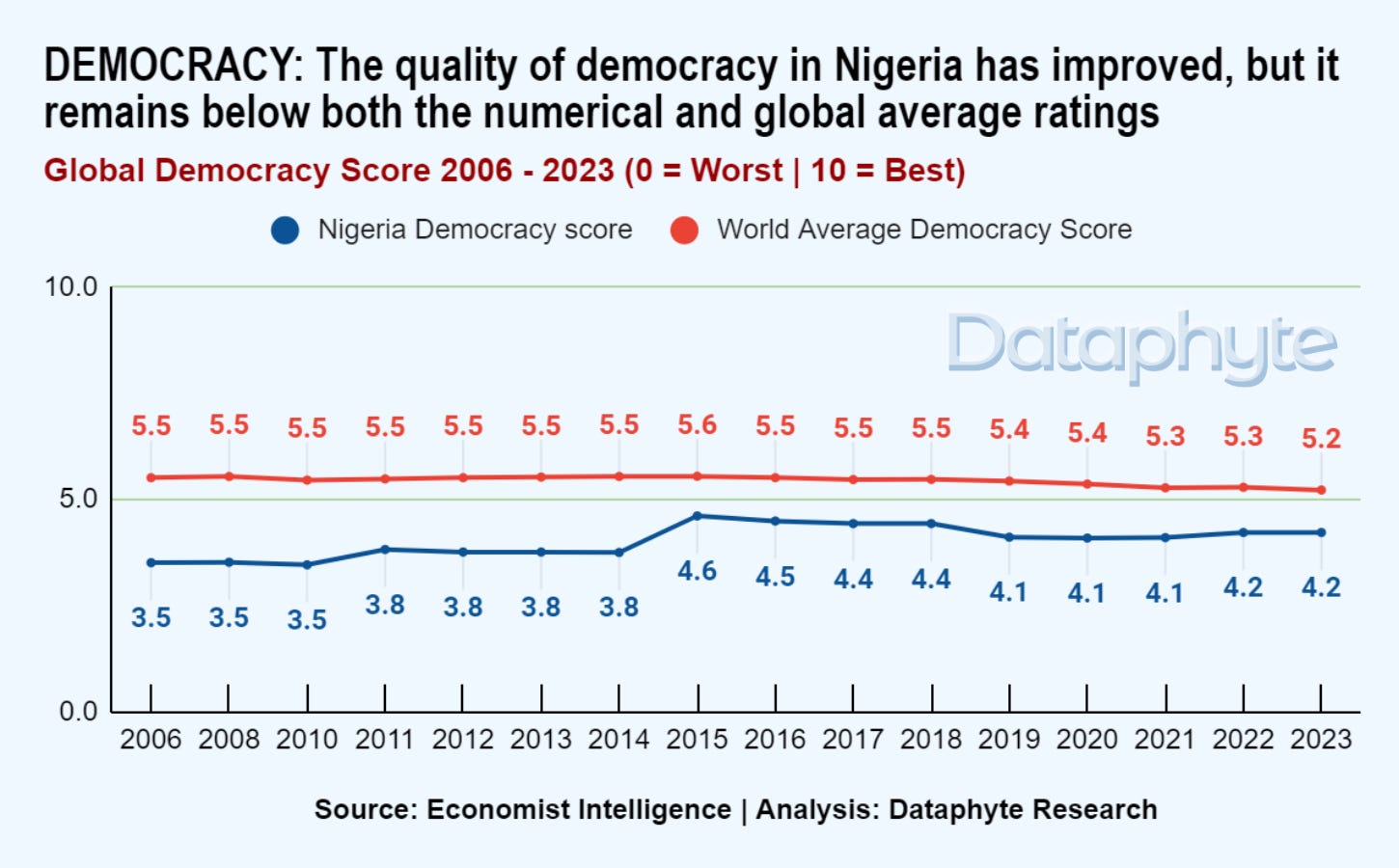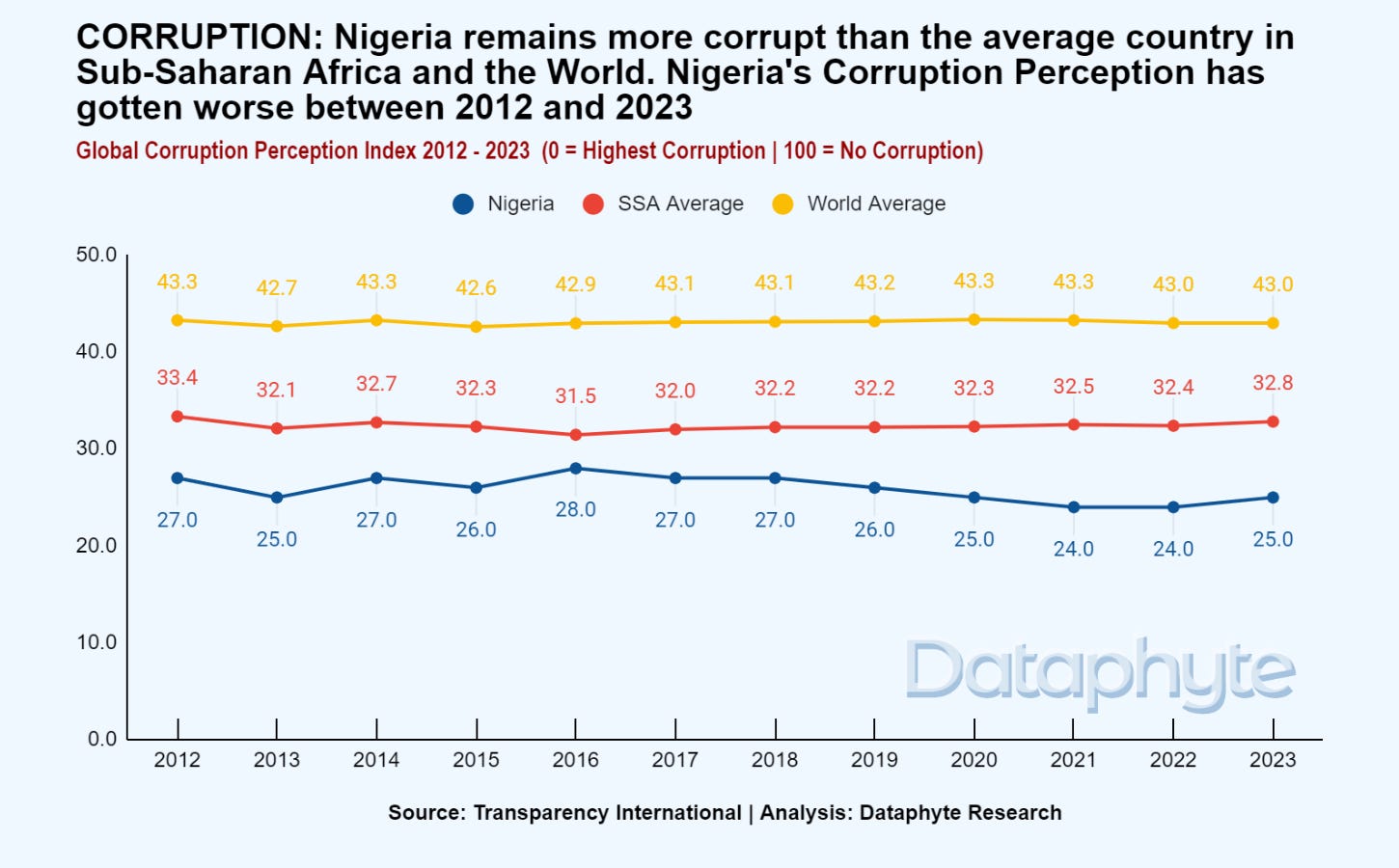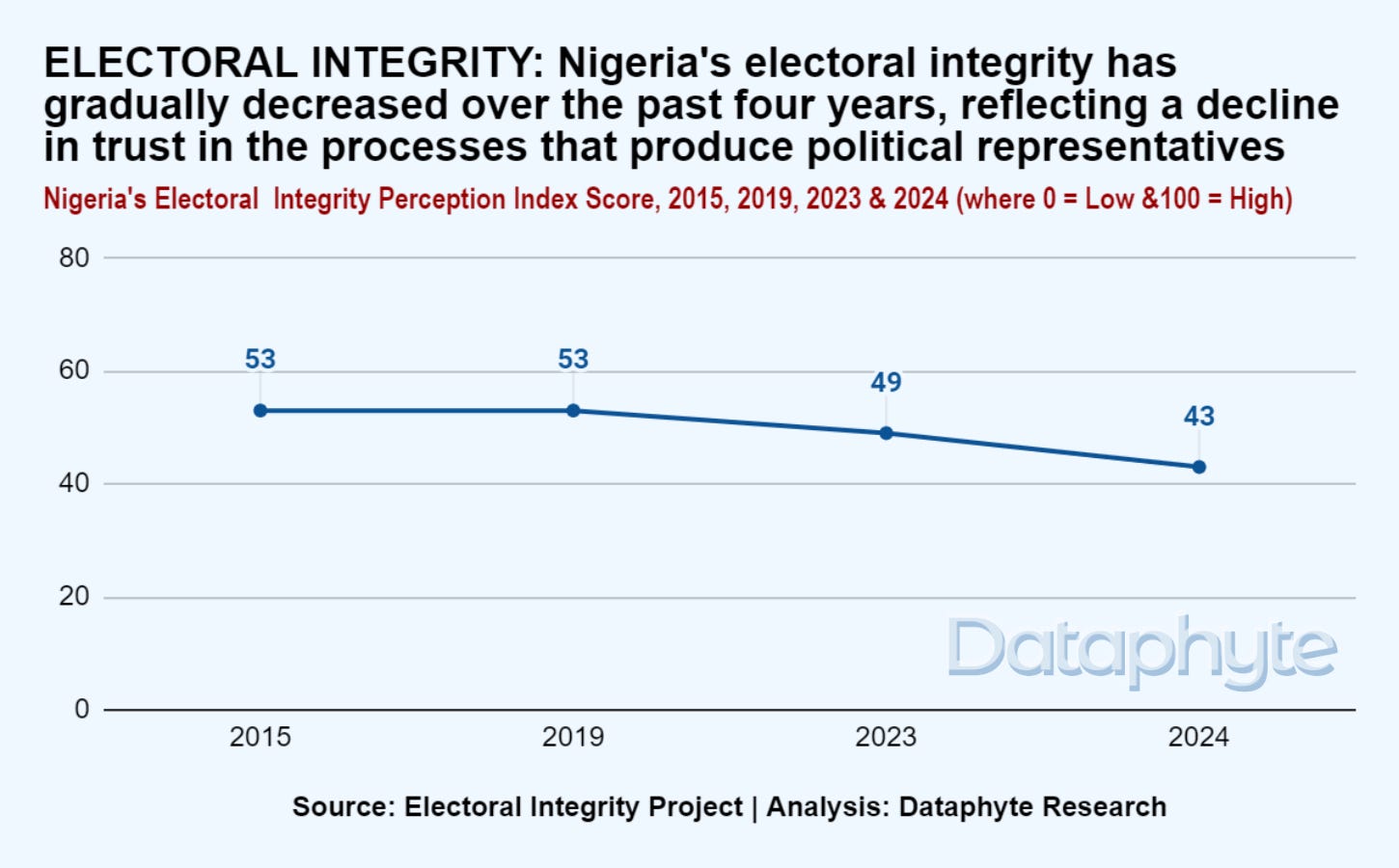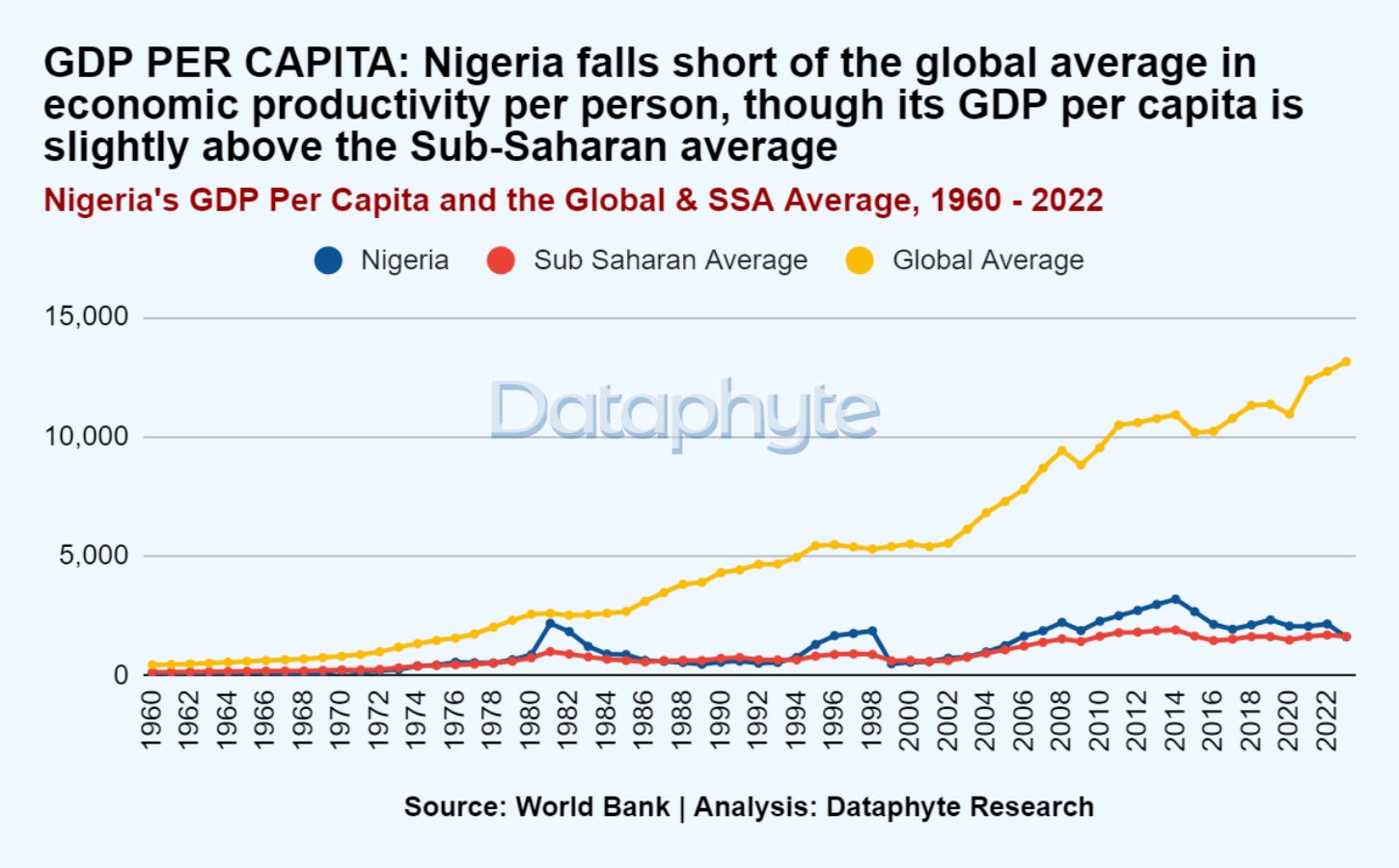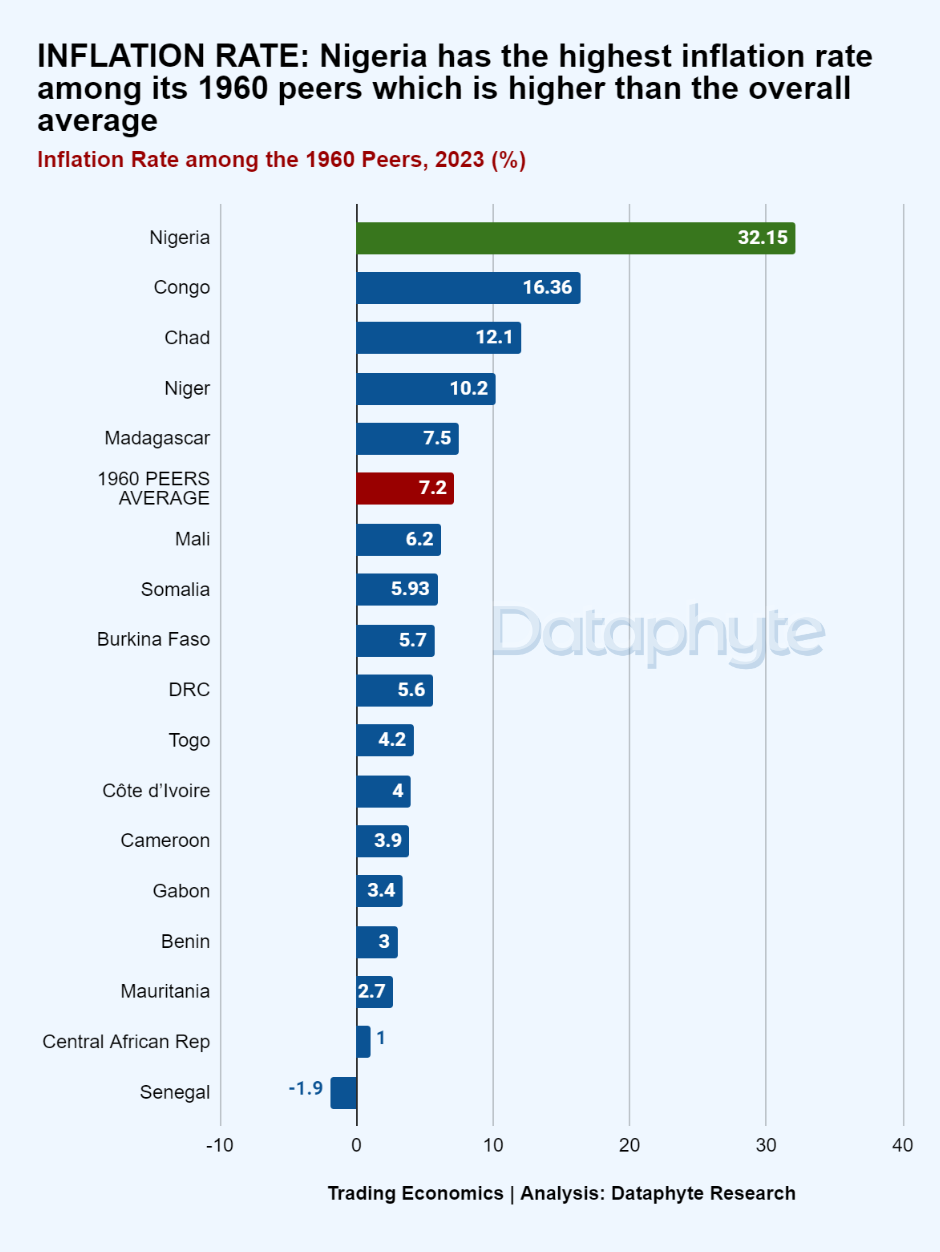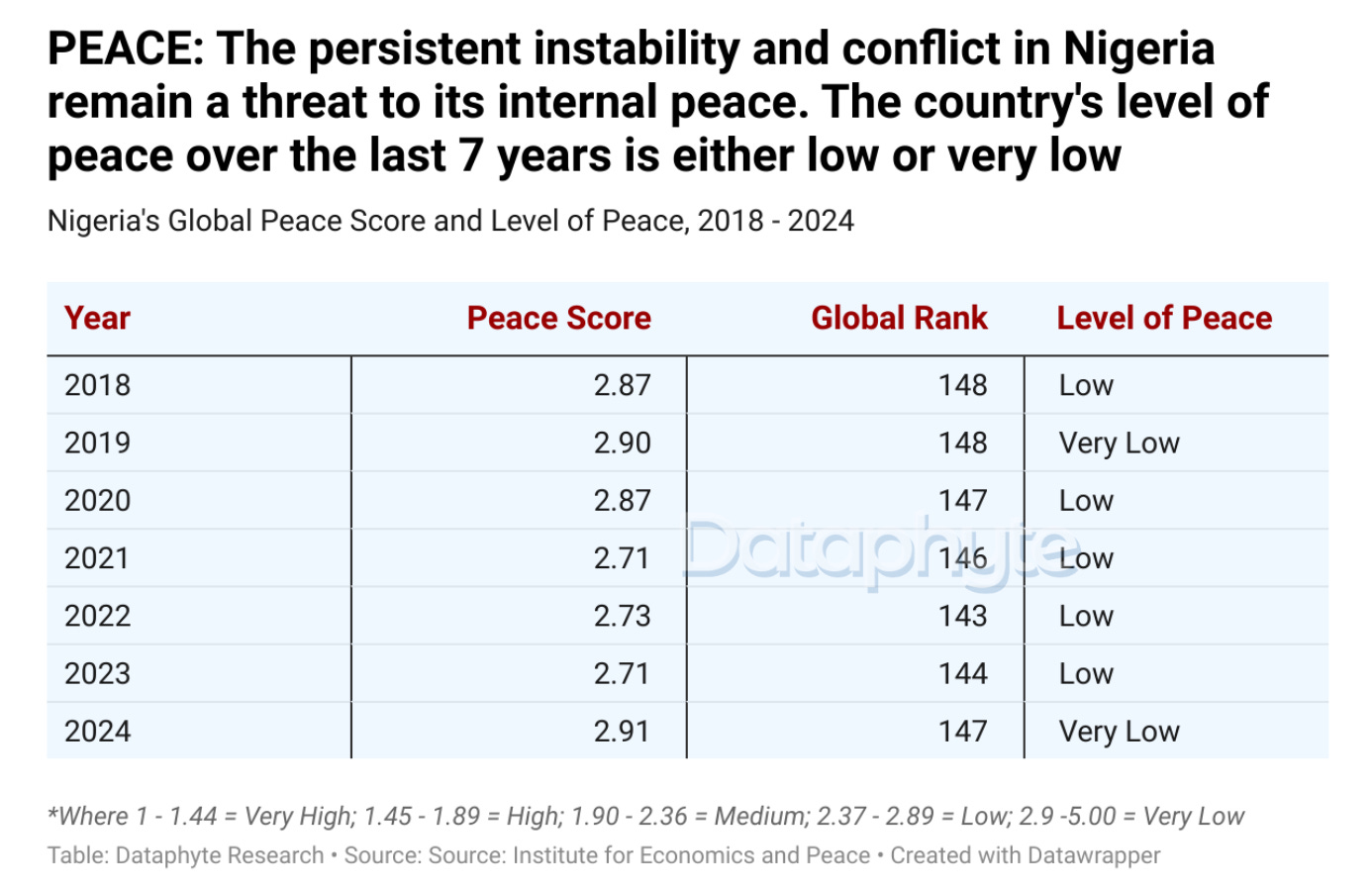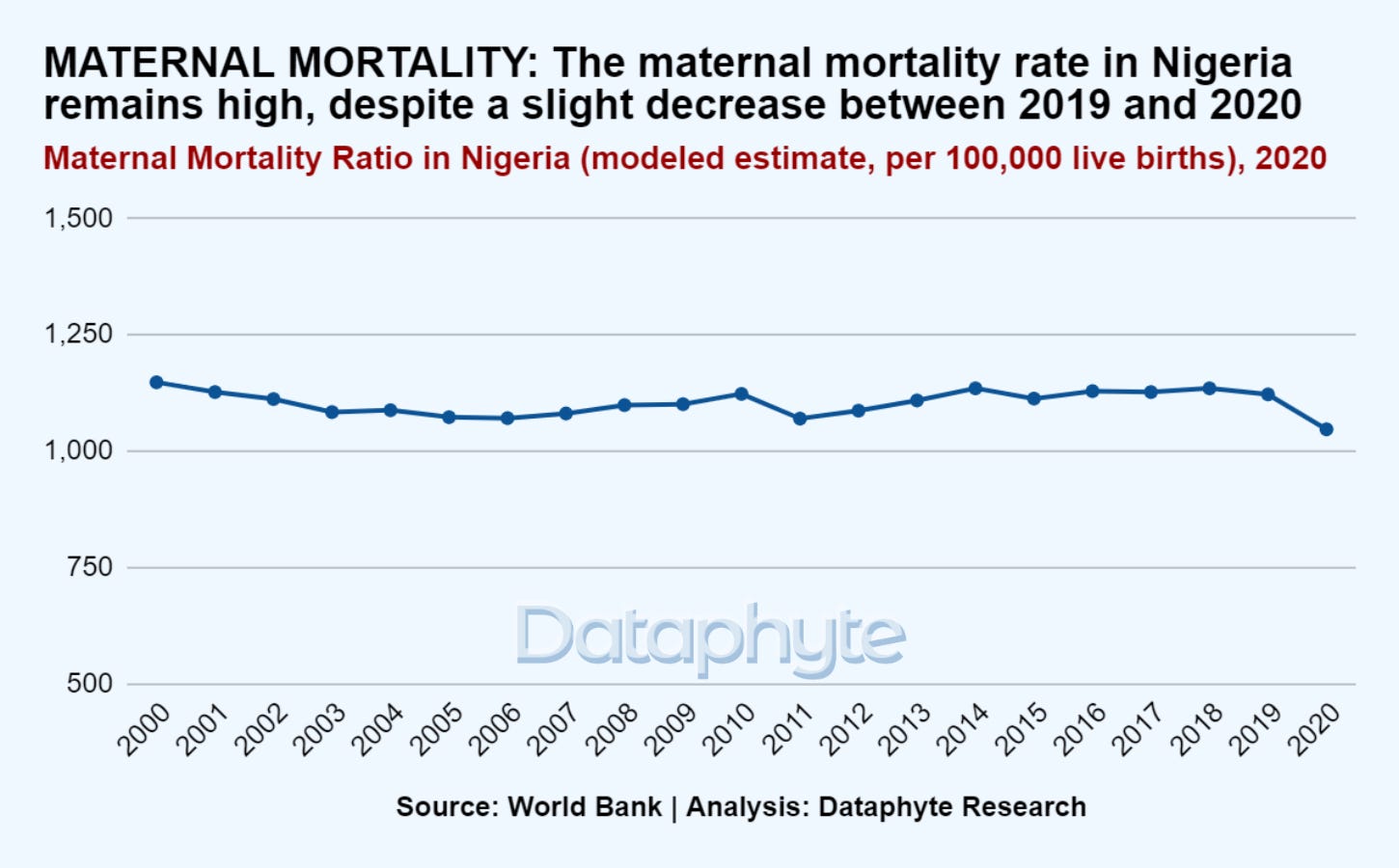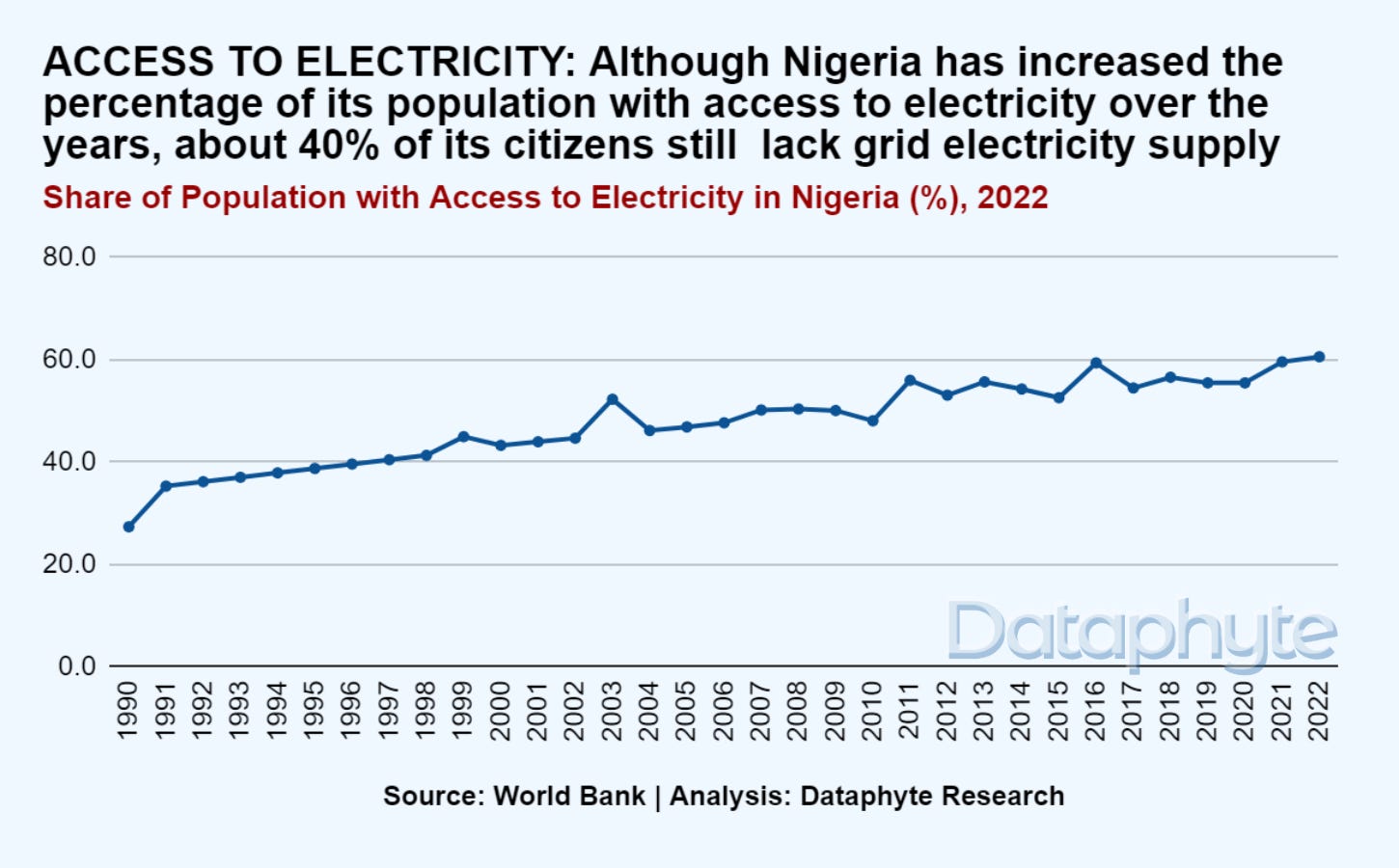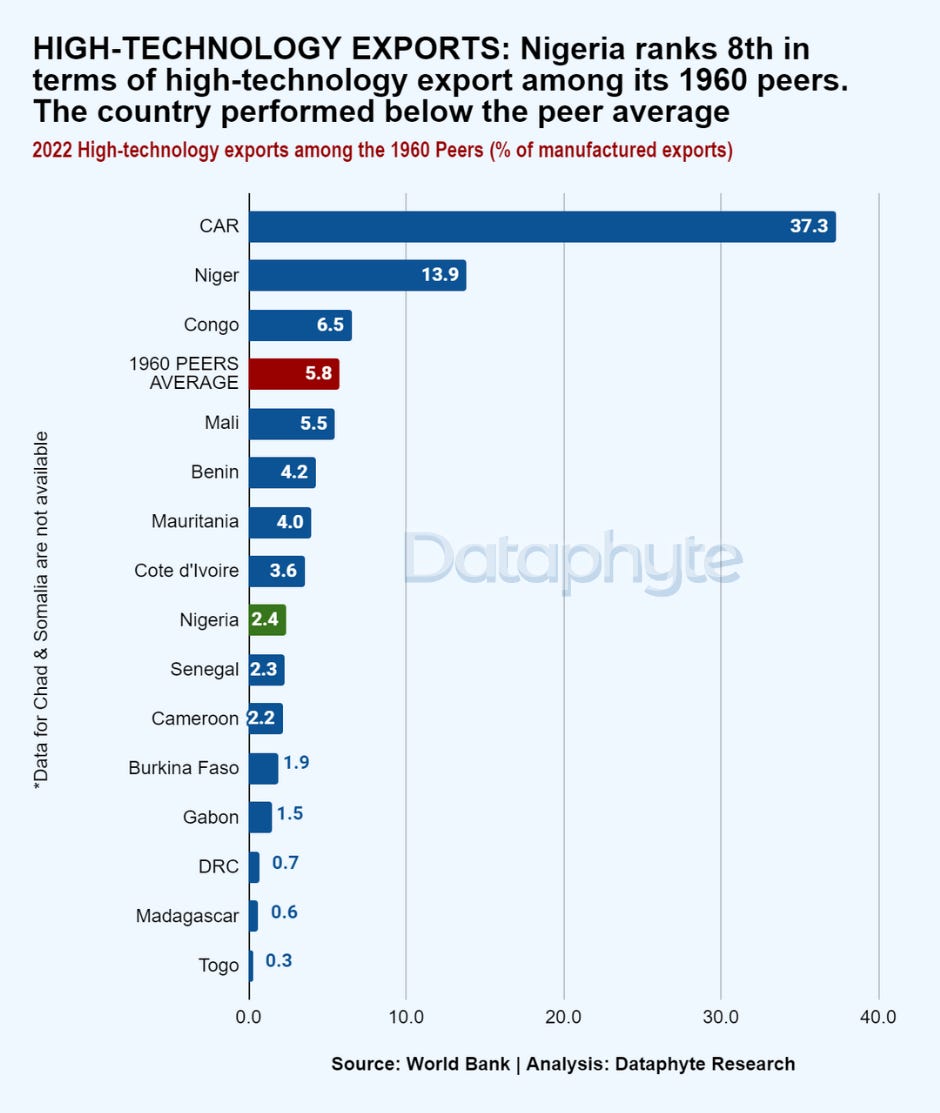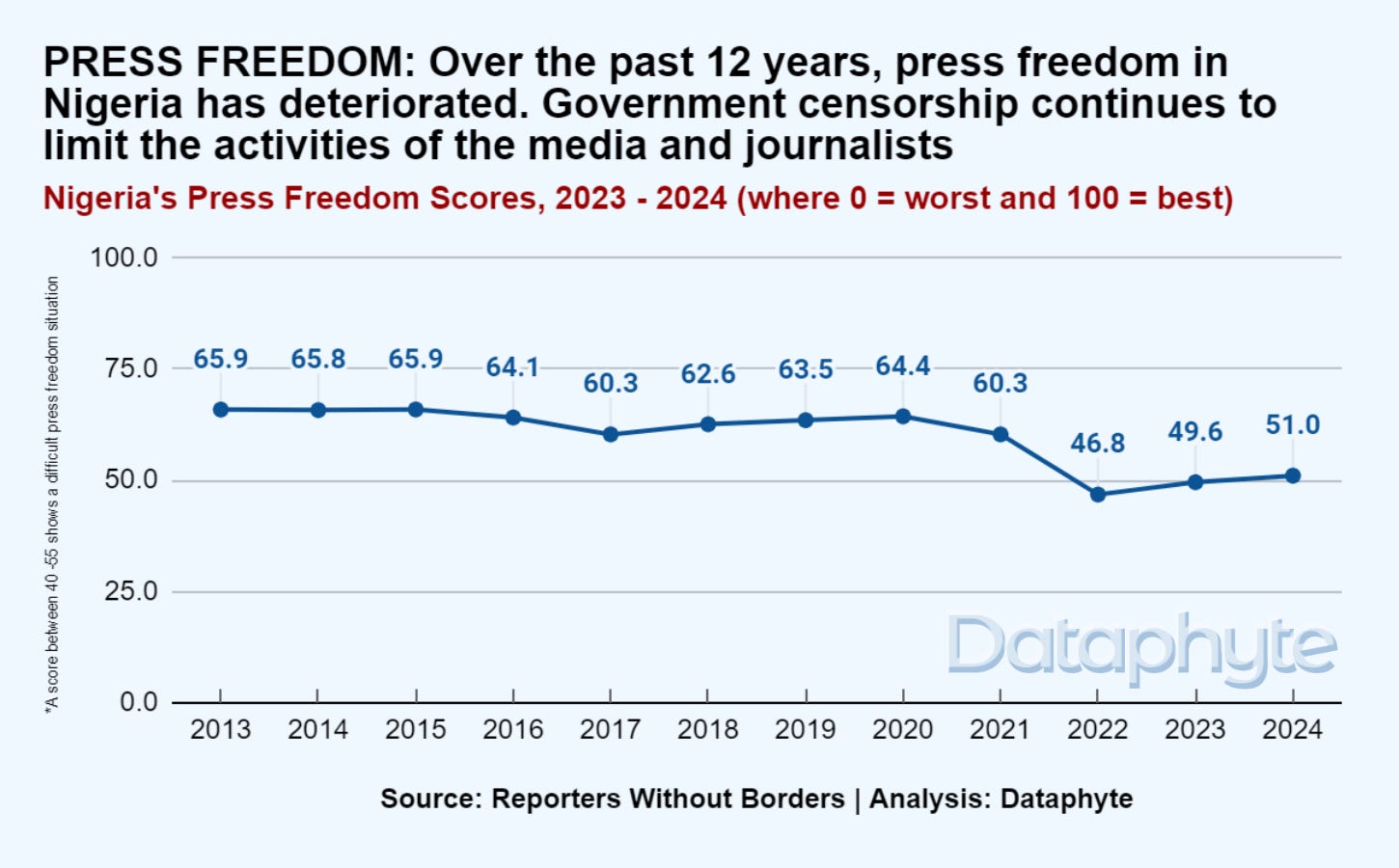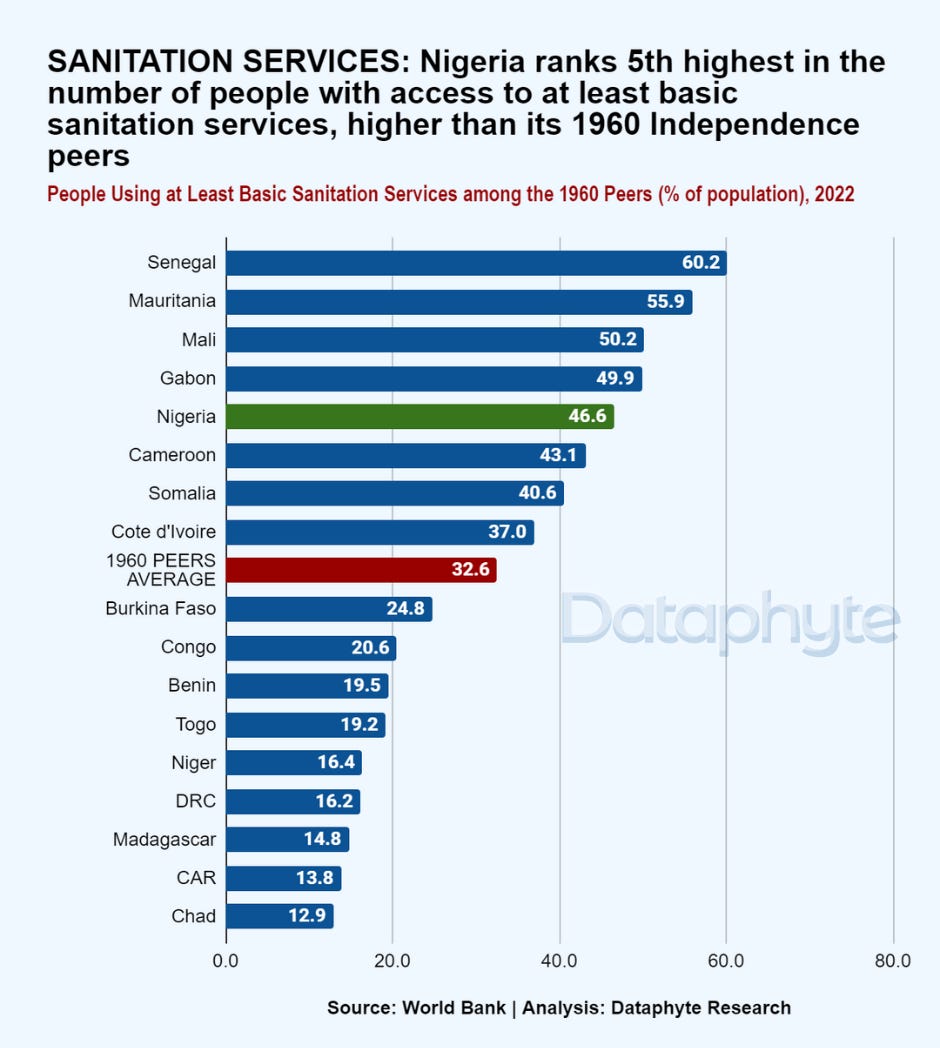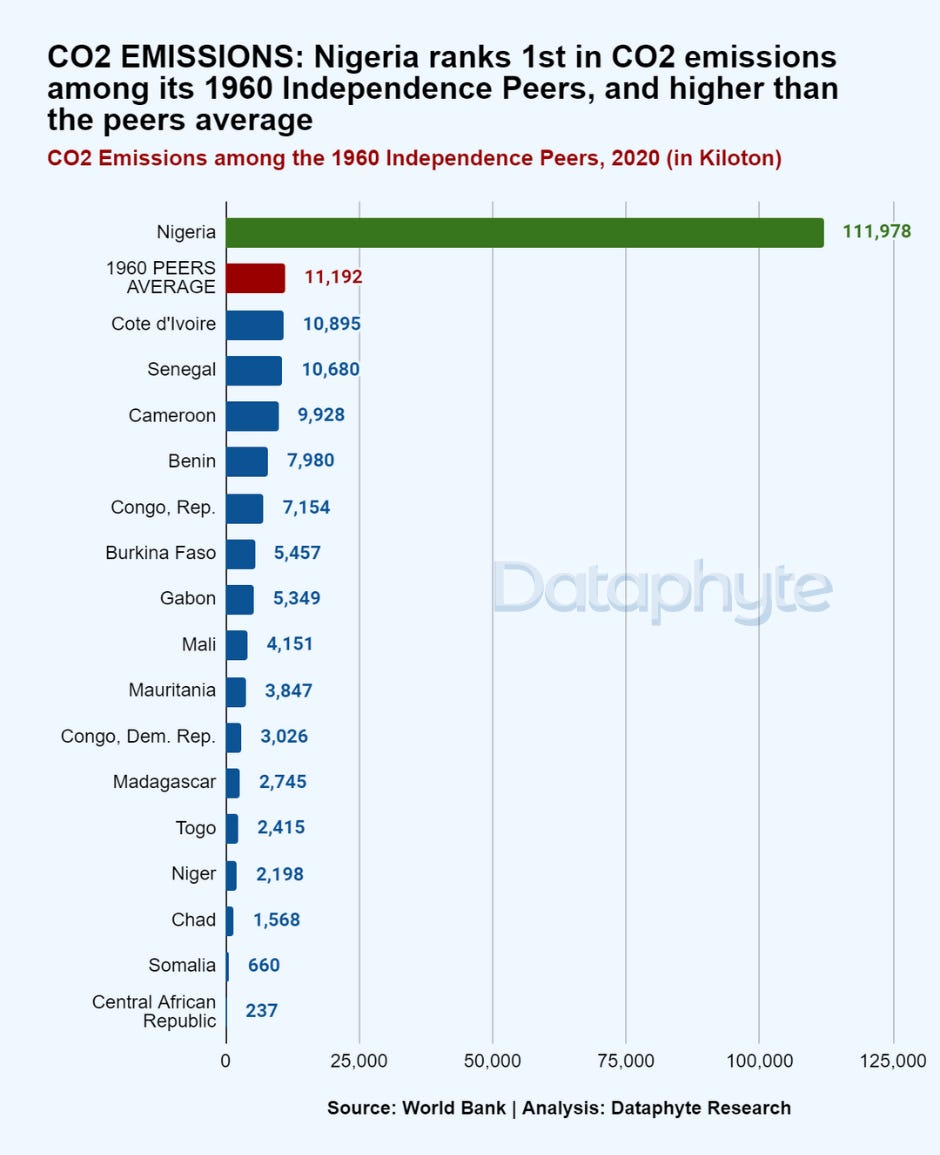Nigeria: 64 Cheers, 64 Charts
Cheers to 64 years of Nigeria's self-rule!
On October 1, the country marked six decades and four years since it shed its label as a British colony.
Sixteen other Sub-Saharan African countries gained independence in 1960.
To commemorate this milestone, we present 64 charts reviewing Nigeria's political, economic, social, technological, legal, and environmental progress throughout these years of supposed independence.
Spanning these six spheres of national emancipation, the charts also spotlight Nigeria’s place among its 1960 independence peers and help determine whether these 17 countries, together with Nigeria, have genuinely achieved independence, 64 years on.
Political Developments
These border on democracy, corruption of public sector officials, electoral integrity, and open (transparent and accountable) government.
Democracy
Corruption of Public Sector Officials
Electoral Integrity
Open Government
Economic Developments
The centre on average productivity of the people in the country, measured in monetary rewards (GDP per capita), unemployment, income inequality, inflation rate, national debt, and balance of payments position with foreign countries.
GDP per capita (Average Money Value of each Person’s Work)
Unemployment (% not found a paid job for at least an hour in a week)
Income Inequality - The Difference between the Rich and the Poor
Inflation Rate
Debt-to-GDP Ratio - The Percentage of People’s Annual Income that will be needed to pay back Government Loans
Balance of Payments
Social Developments
These measure progress relating to social issues like poverty, gender representation, peace, terror, food insecurity, maternal mortality, under-5 mortality, and access to electricity.
Poverty
Gender Representation
Peace
Food Insecurity
Human Development
Maternal Mortality
Under-5 Mortality Rate (Death of Children Under-5 years old)
Access to Electricity
Technological Developments
Technological developments evaluated include internet use, AI preparedness, and high-technology exports.
Internet Use
AI Preparedness
High-Technology Exports
Legal Developments
These border on human rights, rule of law, press freedom, civil and criminal justice.
Human Rights
The Government’s Adherence to the Rule of Law
Press Freedom
Civil Justice
Criminal Justice
Environmental Development
Environmental issues measured include the use of clean cooking oil, open defecation, sanitation services, and Carbon (CO2) emission.
Clean Cooking Oil
Open Defecation
Sanitation Services
CO2 Emissions
Overall, 64 years into Nigeria’s self-rule, its political, economic, social, technological, legal, and environmental developments show the country has performed between poor and mediocre in all these six measures and their respective indicators.
However, when compared with its peer countries that began self-rule in 1960, Nigeria's performance is often above the average performance of the seventeen Sub-Saharan Countries.
If Nigeria’s predicaments are bad, the peer comparisons show they are not as bad as its neighbour.
Nigeria is better than some of its 64-year-old peers!
There is reason to cheer, after all.
64 Cheers, Nigeria!




